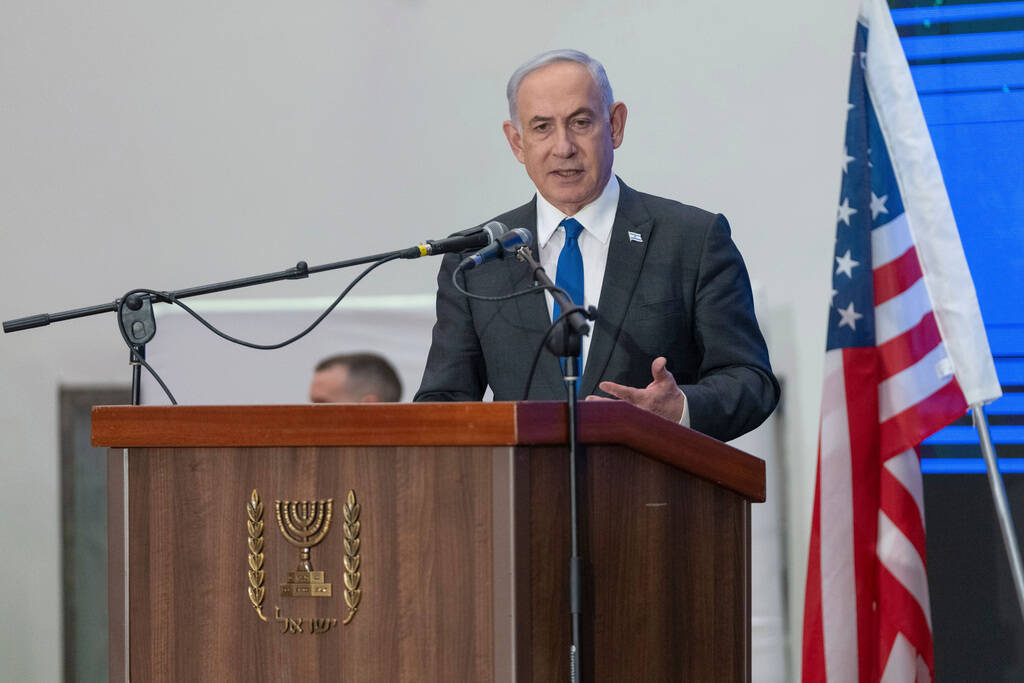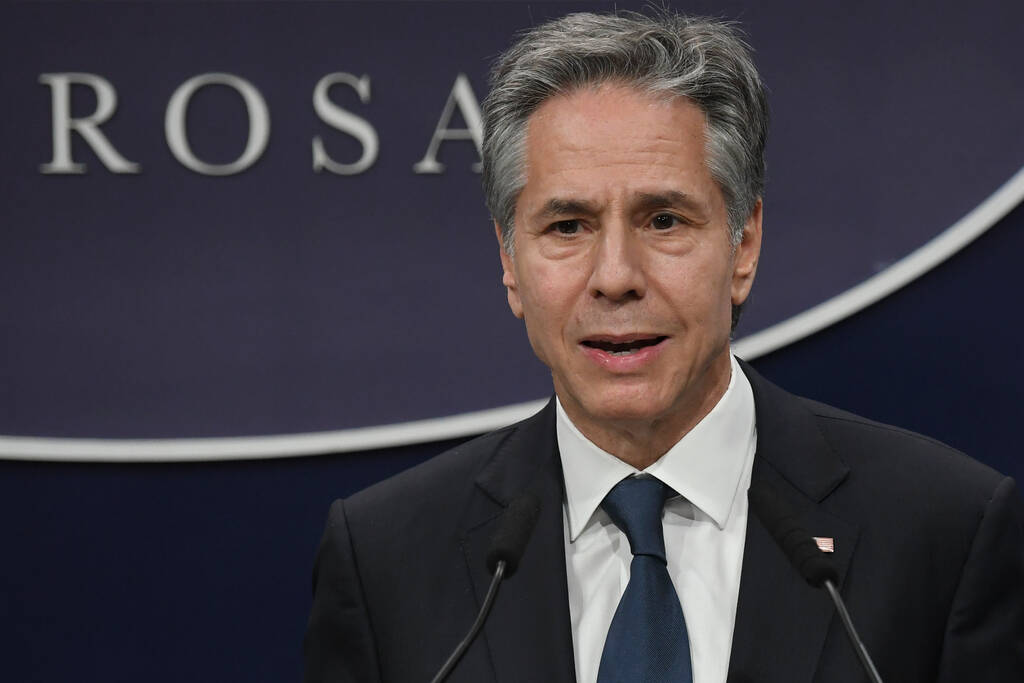Netanyahu seeks open-ended control over security and civilian affairs in Gaza
TEL AVIV, Israel — A long-awaited postwar plan by Israel’s prime minister shows that his government seeks open-ended control over security and civilian affairs in the Gaza Strip.
Separately, cease-fire efforts appeared to gain traction, with mediators to present a new proposal at an expected high-level meeting this weekend in Paris.
The U.S., Egypt and Qatar have been struggling for weeks to find a formula that could halt Israel’s offensive in Gaza, but now face an unofficial deadline as the Muslim holy month of Ramadan approaches.
Prime Minister Benjamin Netanyahu presented the two-page document to his security Cabinet late Thursday for approval.
Netanyahu’s plan marks the first time he has presented a formal postwar vision. It reiterates that Israel is determined to crush Hamas, the terrorist group that overran the Gaza Strip in 2007. Polls have indicated that a majority of Palestinians don’t support Hamas, but the group has deep roots in Palestinian society.
Netanyahu’s plan calls for freedom of action for Israel’s military across a demilitarized Gaza after the war to thwart any security threat. It says Israel would establish a buffer zone inside Gaza.
The plan also envisions Gaza being governed by local officials who it says would “not be identified with countries or entities that support terrorism and will not receive payment from them.”
It’s not clear if any Palestinians would agree to such sub-contractor roles. Over the past decades, Israel has repeatedly tried and failed to set up hand-picked local Palestinian governing bodies.
The Palestinian Authority, which administers pockets of the West Bank, on Friday denounced Netanyahu’s plan as “colonialist and racist,” saying it would amount to Israeli reoccupation of Gaza. Israel withdrew its soldiers and settlers from Gaza in 2005, but maintained control of access to the territory.
Secretary of State Antony Blinken said he had not seen details of the plan. But he said any plan should be consistent with basic principles the U.S. had set out for Gaza’s future, “including that it cannot be a platform for terrorism, there should be no Israeli re-occupation of Gaza, the size of Gaza’s territory should not be reduced.”
The Biden administration wants to see a reformed Palestinian Authority govern both Gaza and the West Bank as a step toward Palestinian statehood. It has sought to chip away at Netanyahu’s resistance by holding out the prospect of the normalization of ties between Israel and Arab powerhouse Saudi Arabia, which demands a Palestinian state as a precondition.
U.S., Israeli, Qatari and Egyptian officials are expected to meet in Paris this weekend to discuss cease-fire efforts. A senior Egyptian official said Egypt and Qatar would bring an understanding reached with Hamas leaders that calls for a six-week cease-fire and the release of elderly and sick hostages in return for a yet-to-be specified number of Palestinian prisoners in Israel.
The official spoke on condition of anonymity because he was not authorized to brief the press. During the cease-fire, details would be worked out on a further stage.
Hamas has demanded a complete halt to Israel’s offensive and a withdrawal of its troops from Gaza in return for the release of all its remaining hostages, as well as the release of Palestinians held by Israel, including top terrorists. Netanyahu has rejected those demands.
Israel declared war on Hamas on Oct. 7, after the terrorists stormed into southern Israel, killing about 1,200 people, mostly civilians, and taking about 250 hostages. More than 100 hostages were freed in a weeklong cease-fire in late November.
Since the start of the war, 29,514 Palestinians have been killed in Israel’s offensive, the Hamas-run Health Ministry in Gaza said Friday. Hamas does not differentiate between civilians and combatants in its count.
Israel says it has killed at least 10,000 Hamas terrorists. It holds Hamas responsible for civilian casualties because the group operates and fights from within civilian areas.




















